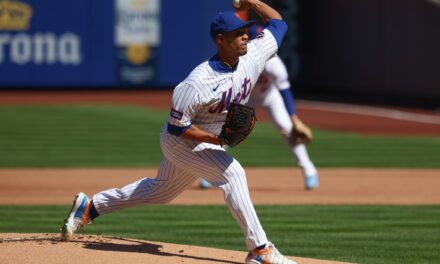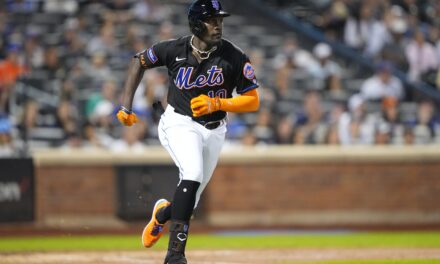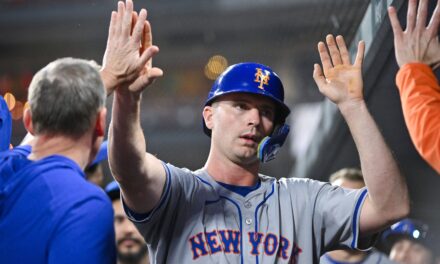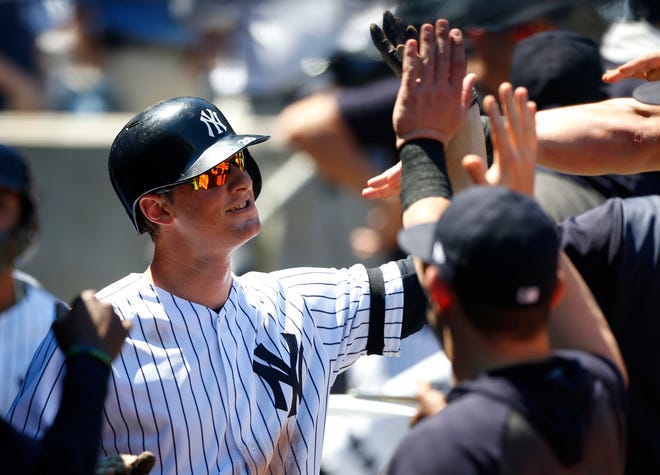
It’s odd how quickly winds can change.
On Wednesday afternoon, the New York Mets were dealt a troubling blow in the year-long suspension handed down to second baseman Robinson Cano following his second positive test for performance-enhancing drugs since 2018.
Shortly thereafter, the brighter-than-expected reality of the situation began to dawn on the blue and orange-clad masses:
Cano’s completely unnecessary gamble (it’s not like he was playing for another contract at 41; who does he think he is, Julio Franco?) and subsequent expulsion into baseball limbo leave the Mets with an extra $20 million to spend this winter and some welcome breathing room for a very much bottlenecked roster.
Oh, the possibilities.
In-house, the logical move would be shifting Jeff McNeil back to second base (+4 outs above average at the keystone position since making his debut in 2018; his strongest defensive position, by far) and filling in the gaps. McNeil was set to appear in mostly left field and at third base, presumably, in 2021. So let’s start there.
Mets could also sign former Yankee DJ LeMahieu to play second or third- depending on where Mets see him and McNeil fitting best – with the extra money they now have to spend.
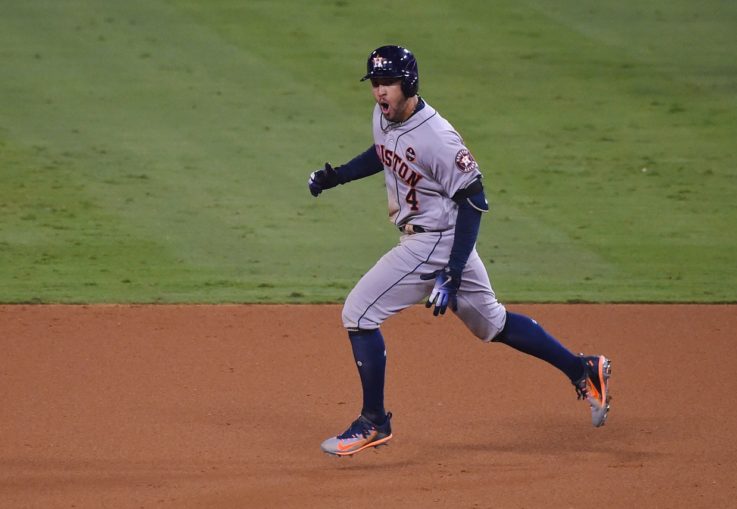
Whether the Mets add a center fielder (George Springer comes to mind, as does the best defensive option currently on the market, Jackie Bradley Jr.), relegating Brandon Nimmo back into a corner spot is yet to be determined, but could be considered a likely course of action.
Similar unknowns exist at the hot corner. J.D. Davis, for his darling batted-ball profile, is a defensive liability at third. Both Andres Gimenez and Luis Guillorme can play third fine defensively, though neither profile there with the bat.
Exploring the trade market — we’ve discussed Nolan Arenado‘s possible availability, as well as the Cubs’ rumored fire sale set to commence this winter, which would leave former NL MVP Kris Bryant ripe for the picking — for a next-level third baseman is an option.
And the $20.25 million the Mets are saving on Cano could certainly help pay for that upgrade. Or, the new front office could choose to reinvest those funds elsewhere. The Mets’ dire need for starting pitching is no secret. An extra $20 million or so can go a long way in this market.
If the organization feels newly-minted NL Cy Young Award winner Trevor Bauer is worth his weight in gold, those extra funds will surely help push things along.
Or if the front office feels there’s value to be had in second-tier options like Masahiro Tanaka, Charlie Morton, or Jake Odorizzi, or whether a gamble on a reclamation project like Corey Kluber is worth the risk, or if a surprise market addition like [insert name of non-tendered, high-upside pitcher here] pops up, well, now they’ve got a little extra money to burn.
That’s never a bad thing. Neither is the first year of J.T. Realmuto‘s hypothetical five-year deal being paid for by Cano’s earmarked funds, making what’s expected to be a hefty investment seem a bit lighter on the wallet and much more palatable from a bookkeeping perspective.
Again, the possibilities are endless. And it’s all thanks to Robbie Cano and his $20 million worth of shortsightedness.



